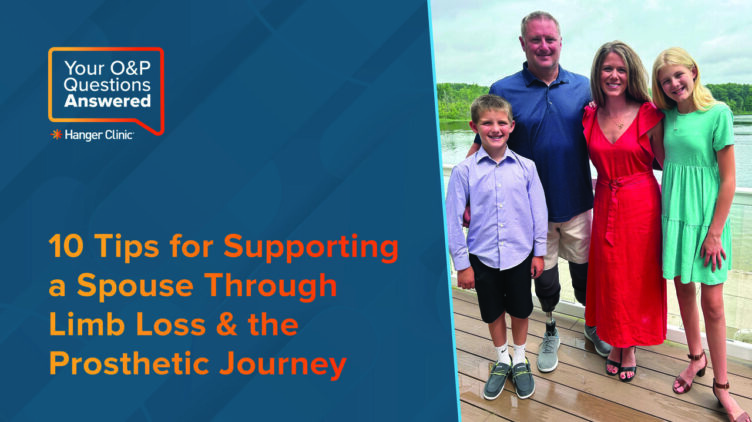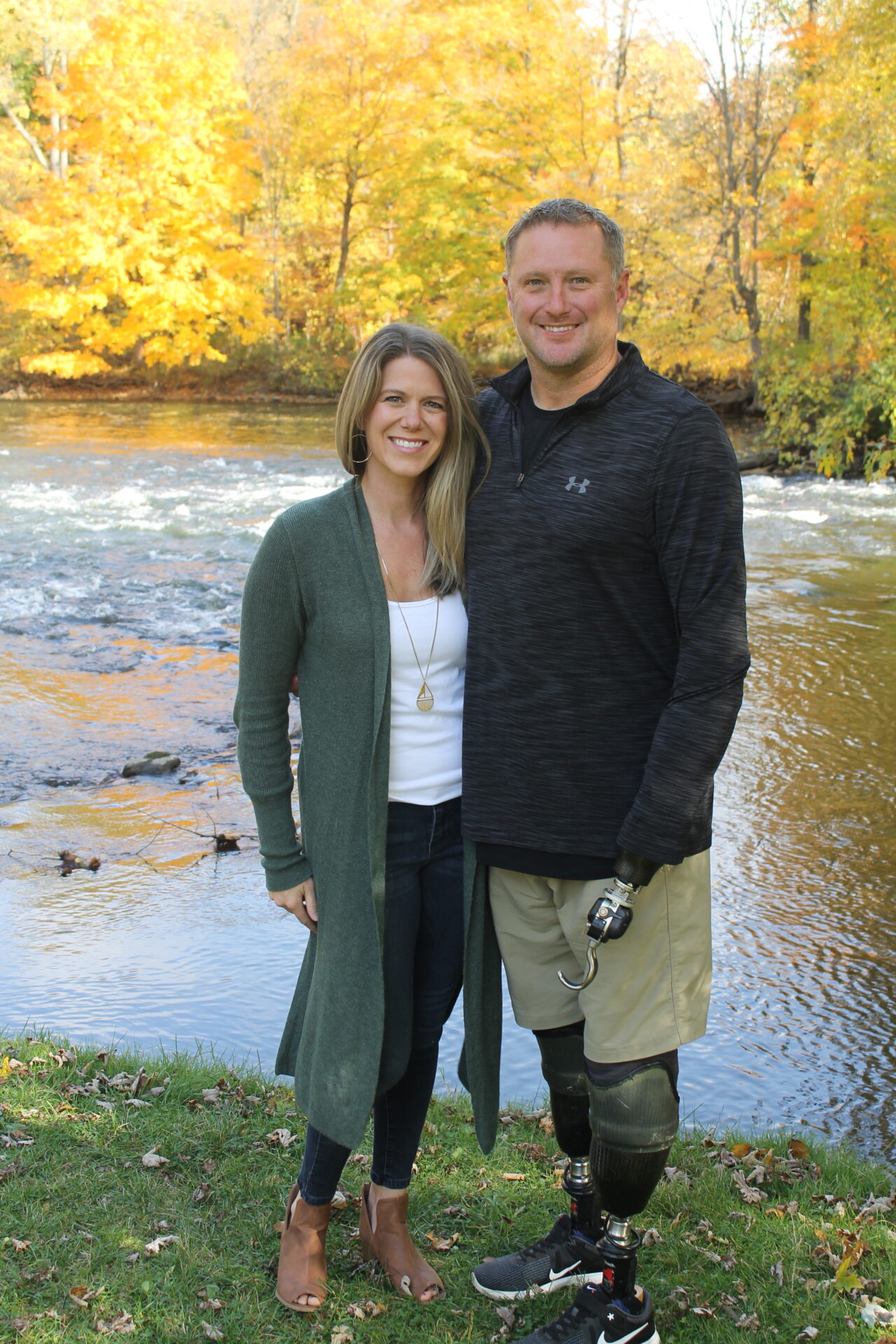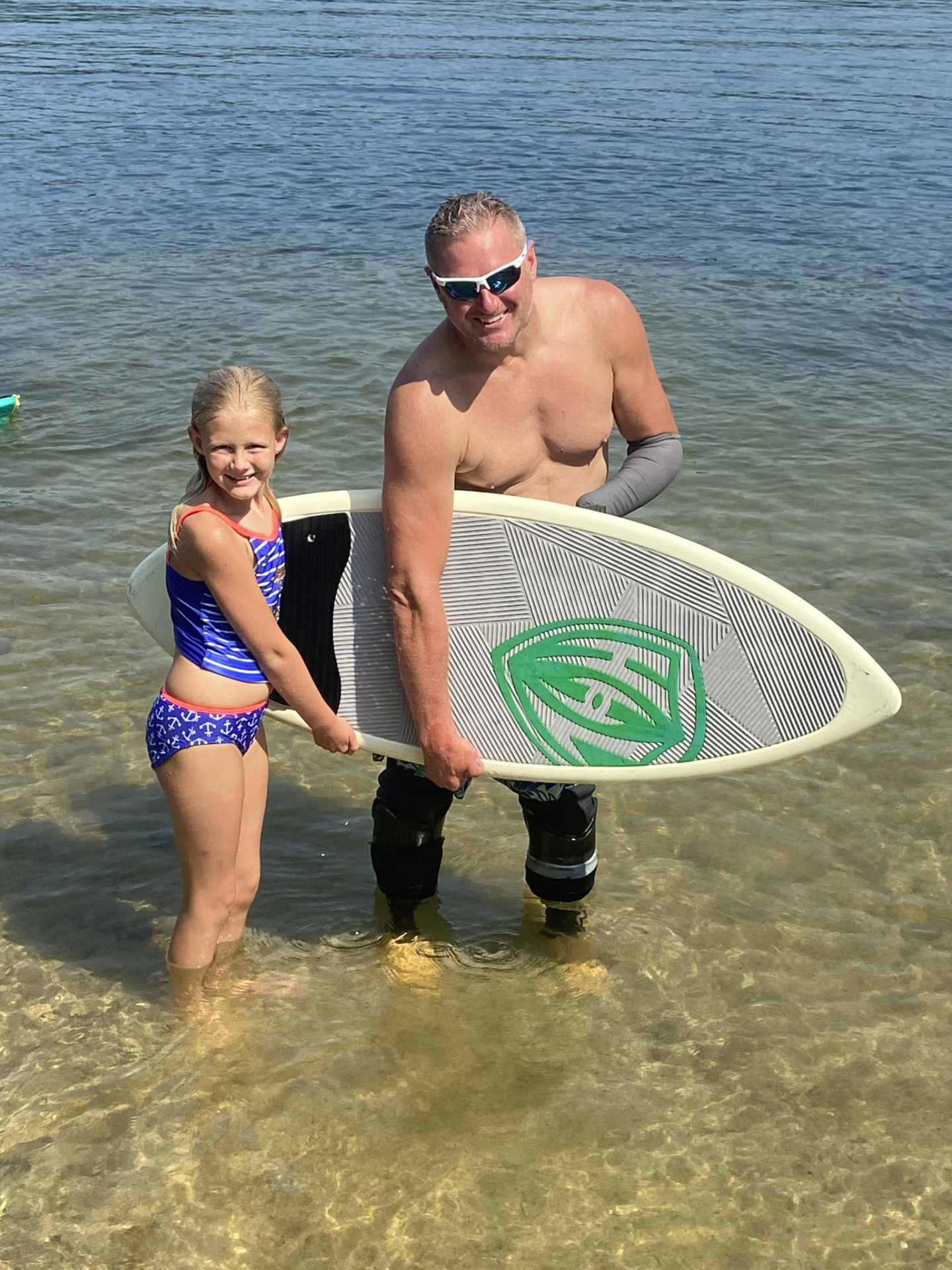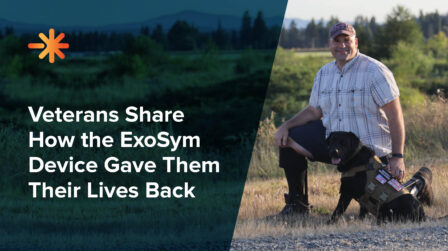10 Tips for Supporting a Spouse Through Limb Loss and the Prosthetic Journey

Experiencing limb loss is a profound and life-changing event, not just for the person who experiences it but also for their loved ones. As a spouse or family member, your support and understanding can make a significant difference in helping your loved one navigate this journey. Let’s explore ten tips for supporting your spouse through limb loss and the prosthetic journey.
Kevin Breen experienced limb loss on both legs, his left hand, and the fingers on his right hand after surviving a bacterial infection that led to septic shock. We sat down with his wife, Julie Breen, who shared with us tips she learned as a spouse navigating Kevin’s limb loss and prosthetic journey.
10 Tips for Supporting Your Loved One
1. Learn About Limb Loss and Prostheses
Knowledge is empowering. Take the time to learn about limb loss, the prosthetic process, and the physical and emotional changes and challenges your loved one may face. Understanding the medical aspects, rehabilitation steps, and available resources will enable you to provide informed support.
Julie shared, “When we started this journey, I knew absolutely nothing about the world of prostheses and limb loss. And so, it all felt completely overwhelming to me. But the more doctors’ appointments I went to, the stronger the relationship I made with his prosthetist and the more I was able to support Kevin.”
2. Be Patient and Compassionate
Recovery and adaptation take time, and every individual’s journey is unique. Patience is key as your loved one adjusts to their new reality. Show compassion by actively listening to their concerns, acknowledging their feelings, and offering emotional support without judgment.
3. Encourage Open Communication
Create a safe space for open and honest communication. Encourage your loved one to share their thoughts, fears, and hopes. Let them know that it’s okay to express vulnerability and that you’re there to listen and support them every step of the way.
Julie shared, “It is going to be hard. I don’t like to sugarcoat that. If you choose a joyful heart and try to focus on the things to be grateful for, you’ll be amazed at how much better your days can go.”

4. Assist with Daily Activities
Your loved one may initially need help with daily tasks, such as dressing, bathing, activities around the house, and mobility. Offer them assistance without being overbearing and encourage them to regain independence gradually.
“You just have to let your spouse learn how to do things. So, we started to problem-solve together, and we discussed how he would tackle daily tasks. This was not always easy. Once he accomplished these, we worked towards new goals and larger tasks. Kevin wanted to be independent for himself, me, and our kids. He amazes me with what he is able to do and accomplish,” said Julie.
5. Support Their Rehabilitation
Rehabilitation is an important part of the recovery process. If possible, attend therapy sessions together and try to motivate your loved one to stay committed to physical therapy and prosthetic training. Celebrate small milestones and progress to keep their spirits high.
6. Encourage Participation in Peer Support Groups
Connecting with others who have experienced limb loss can be incredibly beneficial. Encourage your loved one to join peer support groups such as AMPOWER®, Hanger Clinic’s peer-to-peer support program for people with limb loss or limb difference, and to attend events where they can share experiences and learn from others who have walked a similar path. These connections can provide valuable emotional support and practical advice.
“I believe in getting out there and meeting other people going through something similar because those people can relate the most; they have been through it. As a caregiver, go with them to those events and find opportunities to meet other caregivers and help each other. Kevin was involved with the Challenge Athletes Foundation and participated in the Endeavor Games. It was a great opportunity to meet others who helped Kevin reach his goals,” said Julie.
7. Foster a Positive Environment
Create a positive and uplifting environment at home. Surround your loved one with encouragement, love, and positivity. Celebrate their achievements and remind them of their strengths. A positive mindset can significantly impact their overall well-being.
8. Adapt Your Home for Accessibility
Make necessary adjustments to your home to ensure it is accessible and safe for your loved one. Consider installing handrails, ramps, and other modifications to enhance mobility and independence. Creating a comfortable and functional living space will contribute to their confidence and ease of daily activities.
9. Encourage the Pursuit of Interests and Hobbies
Help your loved one rediscover their passions and interests. Encourage them to engage in activities they enjoy, such as adaptive sports, hobbies, or creative interests. Pursuing meaningful activities can boost their self-esteem and sense of purpose. Consider attending BAKA Bootcamp or EmpowerFest to explore new activities and learn from others.
Julie said, “I think it’s really important as a caregiver that you don’t let your spouse lose sight of what was important to them before their amputation. For Kevin, it was getting back in the water. And now, he has done that. Your spouse can return to these activities that they love in life.”

10. Take Care of Yourself
Supporting a loved one through their limb loss journey can be emotionally and physically challenging. It’s essential to take care of your well-being too. Take time for your activities, get appropriate rest, and seek support from friends, family, or a therapist if needed. By prioritizing self-care, you’ll be better equipped to provide the support your loved one needs.
“I could not have done this without my family. At the time when Kevin experienced his amputations, I had a three- and five-year-old. I leaned into my family for support. I cannot thank them enough for stepping in and helping me with Kevin, rides, and raising my kids. I know that family looks different for everyone but use your support system and don’t be afraid to ask for help,” said Julie.
Final Words of Advice
When we asked Julie for final words of advice, she shared, “Help your spouse believe that they can, and help them look for resources to get them back to that thing they loved doing. Kevin and I always say that there is really nothing he can’t do. It might look different than what it used to, and it might not be the same way that he used to do something, but there’s nothing he can’t do.”
Request a Free Evaluation
If you or someone you love is looking for personalized care following amputation, get in touch with a board-certified prosthetist at a Hanger Clinic near you.
Latest Updates
Subscribe to stay up-to-date on our latest posts.


